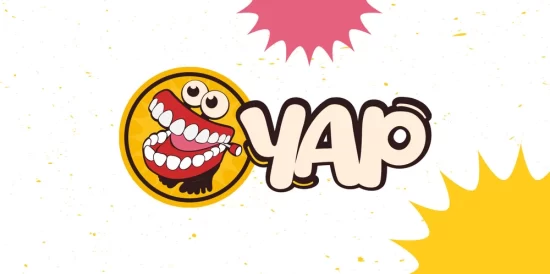TL:DR
If streak-grinding has left you exhausted and no closer to real conversation, a 30-day “mastery-first” sprint can reset your routine. Drawing on habit-formation psychology, spaced-retrieval research and the emerging “learn-to-earn” crypto model, this plan swaps XP points for measurable skill gains and token rewards. Below you’ll find the science, the incentives and a week-by-week blueprint—plus practical ways YAP bakes it all in.
Why Habits Beat Streaks
- Points, badges and leaderboards frequently lower actual performance when they reward speed over struggle. (arxiv.org)
- Duolingo’s recent “AI-first” pivot sparked backlash precisely because many users already feel progress is superficial. (ft.com)
- Memory science shows that durable learning requires effortful recall spaced over time, not endless replays of the easiest drills. (pmc.ncbi.nlm.nih.gov, stemeducationjournal.springeropen.com)
The Science Behind a 30-Day Sprint
- Forming a new automatic routine typically takes four to six weeks, with early repetition acting as the “trigger phase.” (pmc.ncbi.nlm.nih.gov)
- 30-day public challenges leverage social commitment, which researchers find amplifies adherence. (extraordinaryroutines.com)
Earn-By-Mastery: Why Crypto Rewards Can Boost Your Drive
- Platforms such as BitDegree and Coinbase’s “Learn & Earn” courses show that token incentives can double lesson-completion rates. (bitdegree.org, koinly.io)
- Self-Determination Theory warns that poorly designed extrinsic rewards undermine intrinsic interest, but competence-based rewards can enhance it. (selfdeterminationtheory.org, sciencedirect.com)
- Blockchain lets apps issue scarce, verifiable rewards without middlemen— already reshaping education funding and credentialing. (en.cryptonomist.ch)
- Case studies like Code of Talent’s ICO illustrate how tokenised mastery milestones can finance tutors while motivating learners. (accid.org)
Your 30-Day Deep-Learning Blueprint
Week 1 — Reset & Script
- Delete romaji/pinyin toggles and learn the native script through daily handwriting bursts.
- Install a spaced-repetition deck; aim for two short reviews a day.
Week 2 — Pronunciation & Spacing
- Record yourself shadowing native audio for 5 minutes.
- Stretch review intervals to 24 h and 72 h to trigger effortful retrieval.
Week 3 — Comprehensible Input & Community
- Listen to or read content you understand ~95 % of; log unknown items.
- Join a peer chat group and post one voice note every other day.
Week 4 — Reflection & Reward
- Keep a nightly three-line journal: “What clicked, what tripped me, what’s next.”
- Claim mastery tokens (or simulate them with a personal reward) only after passing delayed recall checks.
(YAP automates each step: script bootcamps gate progress, AI speech analysis scores your shadowing, community quests create social pressure, and $YAP drops only after spaced reviews.)
Measuring Mastery, Not Minutes
- Replace “days in a row” with retrieval success rate at 48 h+ delays—a metric tied directly to long-term retention. (stemeducationjournal.springeropen.com)
- Track tone-or segment-level pronunciation accuracy instead of generic “mic-pass” scores; modern speech-analysis APIs make this trivial. (koinly.io)
- Post your weekly reflection summary publicly; accountability boosts follow-through by up to 33 %. (extraordinaryroutines.com)
Ready to Level Up?
Shifting from streaks to mastery takes one focused month. Pair science-backed habits with competence-based crypto rewards, and your linguistic “plateau” becomes a launchpad. Start the challenge solo—or hop into YAP’s beta and let the app handle the spacing, scoring and token drops while you concentrate on real-world fluency.
Team YAP





